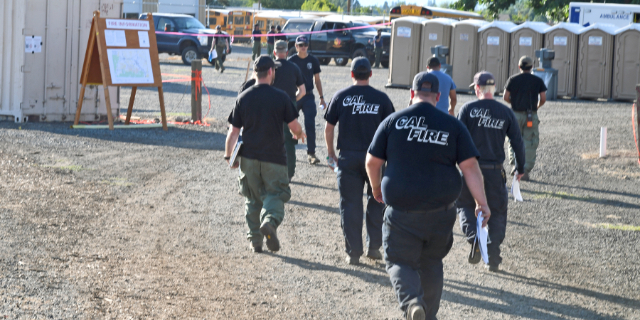Asante investigation puts spotlight on drug theft by hospital employees
Published 9:38 am Friday, January 5, 2024

- The Asante emergency room entrance in Medford. Asante did not respond to the Dollar For report but said it has provided nearly $177 million in community benefit spending — which includes charity care — from Oct. 1, 2021, to Sept. 30, 2022.
An investigation into the suspected theft of drugs by a former employee from Asante Rogue Regional Medical Center, which news reports have linked to serious infections and deaths, illustrates a dangerous new equation facing the health care industry and its patients.
Trending
Take a tidal wave of powerful, addictive opioids, add the stress and high turnover at hospitals stemming from the pandemic, throw in inadequate prevention programs and a code of silence that reigns among some employees, and you have the makings of a significant public health problem.
Drug diversion, as it’s called, refers to the theft of drugs by health care workers either for their own use or to resell it. Diversion is not a new issue, and it’s unclear whether it is becoming more prevalent.
But hospitals and regulators don’t know what they don’t know, said Karen Kobelski, general manager at Wolters Kluwer Health, which sells anti-diversion software to hospitals. Experts estimate that as many as 10 to 15% of health care workers will experience substance abuse issues, she added. (That number is lower than the 16.5% of the 12-and-older U.S. population with substance use disorders, according to federal estimates.)
Trending
Working in health care can lead to diversion for people with a propensity for addiction because they have constant access, Kobelski said.
The opioid epidemic, the stress of the pandemic, and higher turnover among hospital staff have created a “perfect storm” for diversion, she added.
In Oregon, the Medford Police Department confirmed it is actively investigating claims that a former Asante Rogue Regional Medical Center employee stole controlled substances prescribed to patients that resulted in “adverse patient care.”
Medford-based KOBI-5 News, citing anonymous sources, reported last week that between eight and 10 patients died of infections after an employee pocketed their prescribed painkiller, fentanyl, and instead injected them with unsterilized tap water. The Oregonian/OregonLive has not independently confirmed the report.
Diversion happens at even the most prestigious hospitals and clinics.
In 2021, a nurse at the Yale Fertility Center pleaded guilty to charges she tampered with vials of fentanyl. The case prompted more than 70 patients at the clinic to sue Yale University, claiming they underwent unnecessarily painful fertility procedures after they were injected with saline rather than the normal painkiller when a nurse swapped out the vials.
The lawsuit says providers at the Yale Fertility Center and Yale Reproductive Endocrinology and Infertility clinic failed to implement basic steps to avoid opioid diversion, allowed an opioid-addicted nurse to manage the supply of fentanyl and, when the drug diversion was discovered, failed to alert all of the patients that could have been impacted.
Diversion in a hospital setting can happen in a number of ways. Health care workers can simply steal narcotics, or they can “scavenge” surplus narcotics left over from a surgery or emergency room treatment, according to the Oregon Health Authority. Thieves often try to cover their tracks by replacing a narcotic with a similarly appearing substance.
In its own summary of the issue several years ago, state health officials concluded that “patient safety is compromised whenever diversion by healthcare workers occurs.”
They may suffer unnecessary pain due to doctored or watered down painkillers, and they could be exposed to life-threatening infections like hepatitis C or the bacterium C. diff.
Rob Nosse and Travis Nelson, two Oregon lawmakers with close ties to the nursing industry, said it’s important to remember that verified diversions are few. “These cases are awful and disgusting,” said Nosse, a former official of the Oregon Nurses Association, a labor union. “They are also rare. But they get a lot of attention because they’re awful and disgusting.”
Nelson, a working nurse, said hospitals should have strict protocols in place to prevent diversions. Some hospitals require two health care workers be assigned to pick up and deliver narcotics so that they can watchdog the other, Nelson said.
Pharmacy audits and a pain complaint tracking system are also important tools, Nelson said. An unexplained surge in narcotic usage or complaints about ineffective painkillers may indicate a diversion.
These safeguards require dedicated employees to be effective.
“That’s why it is so important to maintain adequate staffing,” Nelson said.
Nurses have complained that hospitals are chronically understaffed and become more so during the pandemic, when many health care workers retired or quit.









